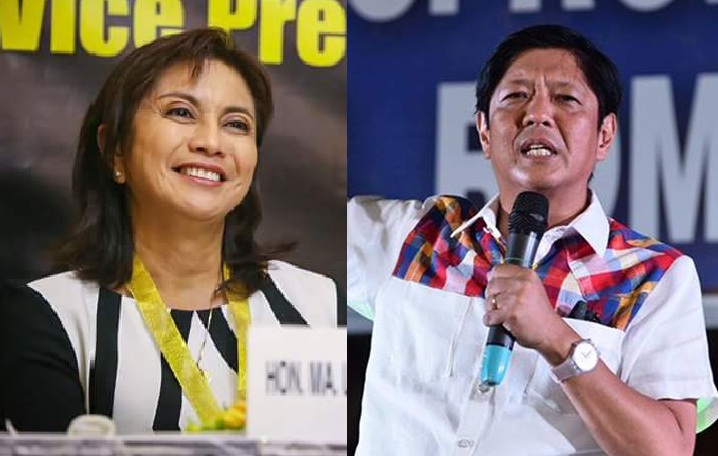Breaking
Preliminary conference on Marcos poll protest vs VP Robredo moved to July 11
MANILA — The Supreme Court sitting as the Presidential Electoral Tribunal (PET) on Tuesday rescheduled the preliminary conference of the electoral protest filed by former senator Ferdinand “Bongbong” Marcos Jr. against Vice President Maria Leonor “Leni” Robredo to July.
SC spokesman Theodore Te announced the directive was issued following Tuesday’s regular en banc session of the magistrates.
Te said the high court reset the preliminary conference from June 21 to July 11.
The SC spokesperson said both camps are also ordered to file their briefs at least five days before the date of the preliminary conference and serve the same on the adverse party.
“This is without prejudice to the Tribunal’s resolution of all remaining pending incidents,’ Te said of the decision.
The preliminary conference briefs contain the following:
The possibility of obtaining stipulations or admissions of facts and documents to avoid unnecessary proof, the simplification of the issues, the limitation of the number of witnesses and the most expeditious manner for the retrieval of ballot boxes containing the ballots, elections returns, certificates of canvass and other election documents involved in the election protest.
Earlier, Marcos has filed successive motions seeking immediate resolution of his election protest.
Last June 1, Marcos through his counsel George Erwin Garcia filed a motion to decrypt and print the ballot image from the Secure Digital (SD) cards and/or data storage devices from each of the 36,465 protested clustered precincts in the contested areas ahead of the scheduled preliminary conference on June 21 to hasten the process.
Garcia explained that the decryption and printing may be ordered by the Tribunal before the scheduled preliminary conference since the 2010 Rules of the PET allows any course of action that will expedite the proceedings.
“Rule 29(a) of the 2010 PET Rules enumerated the items to be considered during the preliminary conference, which includes among others, such other matters as may aid in the prompt disposition of the election protest,” Garcia noted.
He added that such procedure will also “assist in the preparation for the recount proceedings and the presentation of evidence for the protest.”
The contested areas subject of the proposed decryption and printing of ballot images included the provinces of Cebu, Leyte, Negros Occidental, Negros Oriental, Masbate, Zamboanga del Sur, Zamboanga Del Norte, Bukidnon, Iloilo Province, Bohol, Quezon, Batangas, Western Samar, Misamis Oriental, Camarines Sur, Palawan, Albay, Zamboanga Sibugay, Misamis Occidental, Pangasinan and Isabela; Iloilo City, Bacolod City, Cebu City, Lapu-Lapu City and Zamboanga City and the 2nd District of Northern Samar.
Garcia said the decryption and printing of the ballot images will be conducted and supervised by the Election Records and Statistics Departments (ERSD) of the Commission on Elections (Comelec).
He was however quick to note the motion is without prejudice to the conduct of the Judicial Recount/Revision, Technical Examination and Forensic Investigation of the paper ballots and/or the ballot images, voter’s receipts, election returns, audit logs, transmission logs, the lists of voters, particularly the Election Day Computerized Voter’s List (EDCVL), and voters registration records (VRRs), and other paraphernalia used in the May 2016 elections.
The camp of the former senator had also earlier asked the PET to assign three hearing officers who will hear the three main issues in his election protest in order to fast-track the much-delayed proceedings.
Garcia, said that the designation of hearing officers will help the 15-member tribunal in ensure “an orderly, simplified and expeditious disposition” of his electoral protest which raised three main issues.
Garcia said it is most important that a hearing officer be assigned for each cause of action “so as not to muddle the proceedings” as they intend to present a specific set of witnesses and documentary exhibits per cause of action.
He also reiterated the need for Marcos’ election protest to be decided with dispatch and pointed out that the designation of three separate hearing officers would certainly aid the Tribunal in resolving the case in a prompt and efficient manner.
It will be recalled that Marcos filed an election protest against Robredo in June 2016, contesting 39,221 clustered precincts which are composed of 132,446 established precincts. Robredo, meanwhile, filed a counter-protest, questioning 8,042 clustered precincts which are composed of 31,278 established precincts.
Marcos has assailed Robredo’s plea and asked the PET to dismiss her counter-protest since she failed to settle the first installment as directed by the Tribunal
In arguing for the dismissal of the counter-protest, Marcos cited Rule 34 of the 2010 PET Rules which states “if a party fails to make cash deposits or additional deposits herein required within the prescribed time limit, the Tribunal may dismiss the protest or counter-protest, or take such action as it may deem equitable under the circumstances.
Marcos also cited two decisions in election cases – Perla Garcia vs House of Representatives Electoral Tribunal and Rep. Harry Angping and Bienvenido William Lloren vs. Commission on Elections and Rogelio Pua Jr. in which the SC upheld the summary dismissal of the cases for failure to make the required cash deposits within the prescribed time limit.
Marcos earlier said he decided to file the electoral protest due to the series of frauds, anomalies and irregularities that marred the May 9 elections and that such activities made sure he would lose to Robredo, the vice presidential candidate of the administration’s Liberal Party.
Robredo won the 2016 vice presidential race with 14,418,817 votes or 263,473 more than Marcos who got 14,155,344 votes.






















